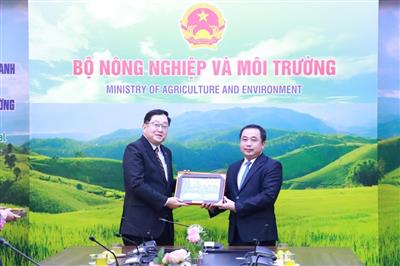
In need of gudelines for monitoring, risk assessment and oil spill remendiation
01/10/2023TN&MTOil spills at sea can have serious economic consequences for coastal activities and those who exploit marine resources. Therefore, there is a need for guidelines on monitoring, risk assessment, and oil spill remediation for relevant authorities to implement.
Currently, many coastal regions are eagerly awaiting the issuance of guidelines by the Ministry of Natural Resources and Environment for constructing and updating environmentally sensitive coastal area maps. These maps are essential for responding to oil spills, conducting investigations, assessing damages, and compiling environmental damage compensation records. They are also crucial for developing and implementing oil spill recovery plans and verifying the unclear sources of oil spills. These guidelines will enable relevant authorities to apply legal frameworks effectively in the monitoring, risk assessment, and remediation of oil and hazardous chemical spills at sea.

The oil spill into the sea is truly horrifying
At present, the Ministry of Natural Resources and Environment has issued Circular No. 33/2018/TTBTNMT, which outlines the procedures for oil spill remediation at sea. This circular includes provisions on the development and implementation of oil spill recovery plans at sea. Furthermore, within the framework of the plan for monitoring, risk assessment, remediation, and resolution of oil and hazardous chemical spills at sea from 2018 to 2020, research and technology application teams are in the process of completing their tasks to transfer results and products to the relevant management agencies.
After receiving these research and technology-related results and products, the Ministry of Natural Resources and Environment will continue to develop legal documents and guidelines for monitoring, risk assessment, remediation, and resolution of oil and hazardous chemical spills at sea. These guidelines will include constructing and updating environmentally sensitive coastal area maps for oil spill response, instructing the investigation, assessment, and determination of environmental damage for compensation purposes, and providing guidance on verifying the unclear sources of oil spills.
To accurately determine the sources of oil spills with unclear origins, it is essential to promptly detect offshore oil spill incidents through on-site forces such as reporting from passing vessels. Upon receiving reports, based on the actual situation, various methods can be used, including satellite imaging analysis, wind, wave, and current data analysis, dispersion modeling, etc., to forecast the oil spill trajectory. This enables timely warnings to be issued to coastal areas for mobilizing response measures and remedying oil spill incidents.

The response and handling are currently very complex and costly.
At the local level, proactive monitoring of the environment in managed areas and timely reporting of unexplained oil spill incidents to the Ministry of Natural Resources and Environment for coordination with relevant agencies is essential.
Vietnam boasts a long coastline and increasing activities involving gasoline, oil, and chemicals. This poses potential risks for unwanted incidents. The consequences of oil spills are always severe and have wide-ranging impacts.
Therefore, it is crucial to equip enterprises, factories, companies, and businesses in environmental-related fields with essential knowledge and skills for responding to oil and hazardous chemical spill incidents. This proactive approach aims to avoid incidents during production or transportation, preventing regrettable consequences from occurring.
Viet Dung
















